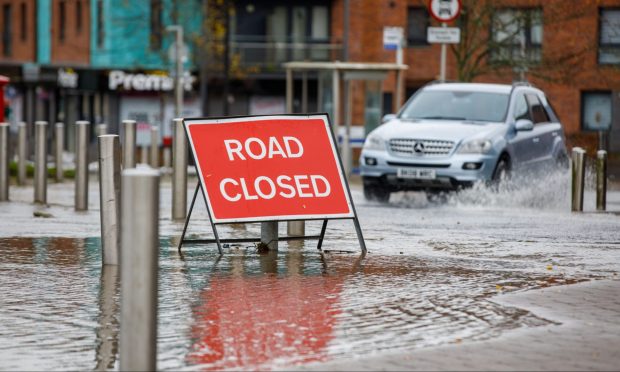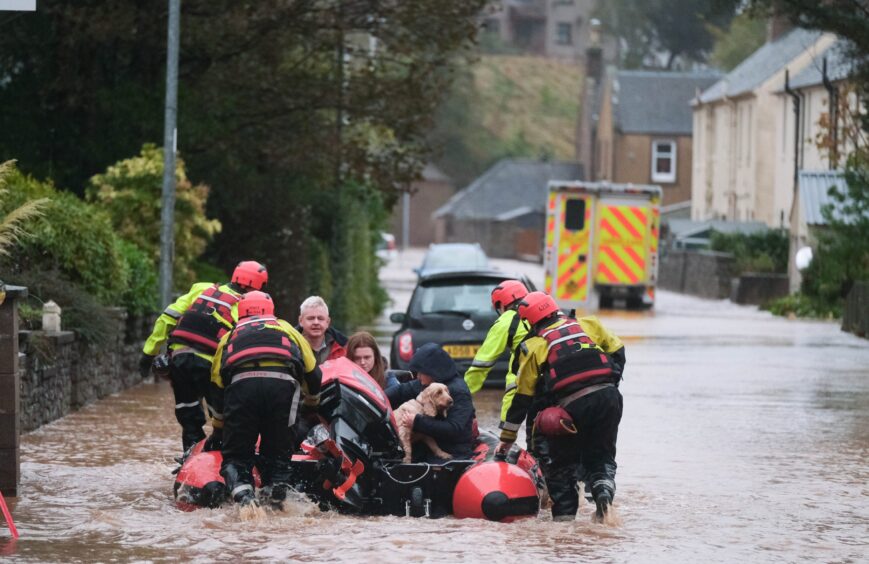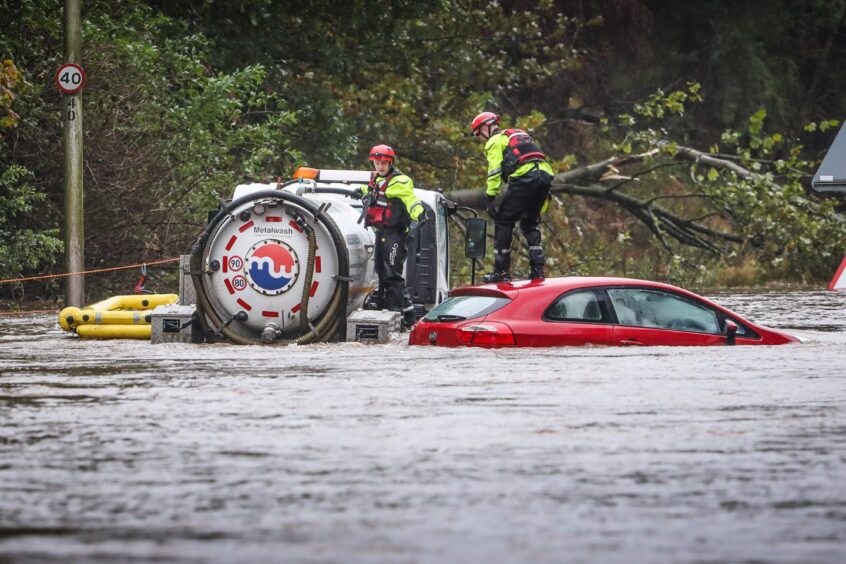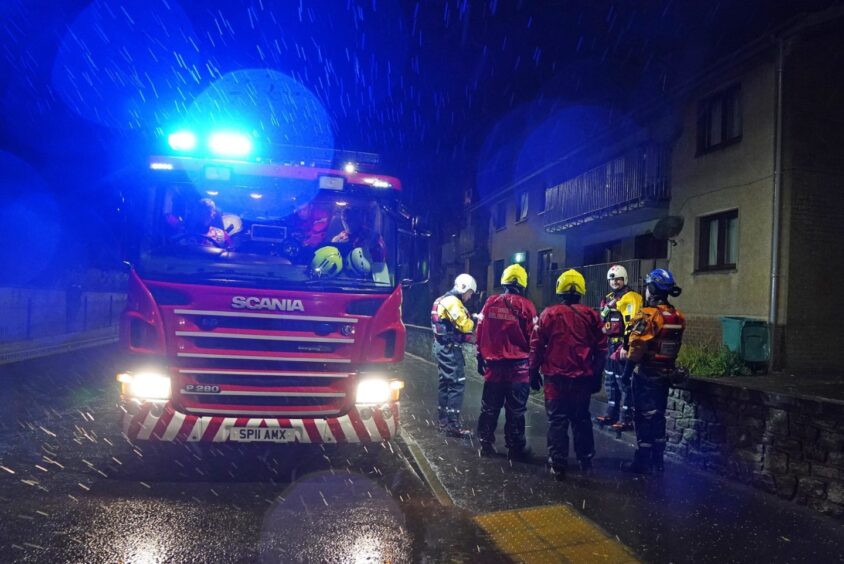Storm Babet could be one of the costliest weather events in Scottish history, with the repair bill expected to reach up to £500 million.
Insurers were already anticipating a spike in claims over the weekend from customers in north east Scotland who have lost everything in the floods.
But a climate change expert warns the bill for future-proofing Scotland’s communities vulnerable to global warming could be even higher.
Seven-year-old flood defences failed
Brechin, in Angus, has been one of the worst-hit areas in the country, with hundreds of homes having to be evacuated.
Bob Ward, of the Grantham Research Institute on Climate Change, said: “At the launch of Brechin’s new flood defence scheme in 2016, it was claimed it would cope with a ‘once in 200 year event’.
“Well, that was just seven years ago and I doubt if it will be another 200 years before we see something similar happening again.”
Scotland is regarded as being particularly prone to extreme weather events because its Atlantic-facing coast attracts more rainfall than other parts of the UK and Europe.
Ward said Scotland’s infrastructure – like roads, railways, drainage and flood defences – will have to be strengthened to cope with what has described as unprecedented rainfall.
He added: “The cost of dealing with this change in our climate is going to be enormous.
“People complain about the cost of tackling global warming but the impact of what will happen if we don’t meet our targets is going to be huge.”
Storm Babet final bill could be highest ever
The Brechin scheme, one of the Scottish Government’s 42 flood prevention projects, was one of the biggest civil engineering jobs ever undertaken in Angus, designed to cope with flooding 3.8 metres high.
The new walls were breached at around 4am on Friday, with the Scottish Environment Protection Agency stating water levels were running five metres above normal.
The last time Scotland was handed a red Met Office weather warning was in November 2021 during Storm Arwen.
Insurers said the final bill for mainly wind-related damage was around £300 million.
The Chartered Institute of Water and Environmental Management says flood events require more costly repairs, which suggests the bill for Babet could be even higher.
Flooding from major rivers across the UK is expected to continue into Tuesday and there was major disruption to transport well into Saturday.
Death toll from storm rises
Six people are feared to have died since the storm hit the UK, as searches continue in Aberdeenshire following reports of a man trapped in a vehicle in floodwater.
A falling tree hit a van near Forfar on Thursday evening, killing 56-year-old John Gillan from Arbroath.
Mr Gillan, who is understood to have worked as a painter and decorator, died at the scene of the incident.
A 57-year-old woman also died on Thursday after being swept into the Water of Lee, Glen Esk.
Two women were killed in a crash linked to dangerous weather on the M4 between Chippenham and Bath on Friday.
Meanwhile, a man in his 60s died after getting caught in fast-flowing flood water in Cleobury Mortimer, Shropshire.
Transport chaos
Dozens of roads were closed by flooding and falling trees, including the A90 between Stonehaven and Dundee, the A9 between Tomich and Alness and the A92 near Cupar between Forgan roundabout and Melville Lodges roundabout.
Angus Council said most roads were affected in the region.
The storm also cut power to more than 33,000 customers in Scotland, with work continuing on Saturday to reconnect 1,100 properties.
London’s King’s Cross station was forced to close due to overcrowding as passengers were warned not to travel by rail.
Network Rail said crowd control measures had been put in place due to disruption to LNER services.




Conversation